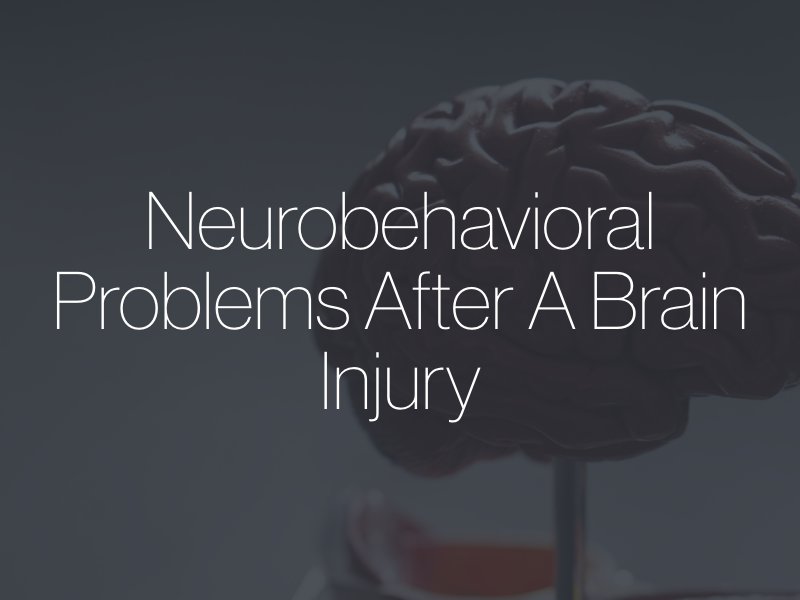Our clients who survive mild, moderate, and severe traumatic brain injuries often suffer post-traumatic chronic neurobehavioral issues. Whether we can convince jurors these complications are real and life-changing requires that our clients pursue appropriate treatment and evaluation.

What are Neurological Issues After a Brain Injury
Neurobehavioral conditions that are a consequence of a brain injury have too often been lumped into a non-specific basket of problems called post-concussive syndrome or post-concussive disorder.
Changes in personality and behavior following traumatic brain injury (TBI) often represent the most significant barrier to rehabilitation and a return to premorbid functioning. A successful rehabilitation and therapy program is critical.
Common behavior issues that must be confronted, treated, and hopefully ameliorated include irritability short temper, excessive aggressiveness, cursing, and threatening. Some of the most difficult behaviors can be dangerous to the patient and others around them. These include physical aggression toward others and self-injurious behavior.
Personality and behavioral changes caused by a traumatic brain injury differ from patient to patient. There is no one standard model. Acting out can affect family dynamics and cause pain and emotional suffering for spouses, children, and other family members. can be devastating for a brain injury victim and their family members. Such changes also alter how our clients function in their day-to-day lives. Frequently behavior challenges act as a barrier to recovery.
Common neurobehavioral problems associated with a traumatic brain injury include the following:
- Irritability
- Aggression
- Property destruction
- Inappropriate vocalizations (yelling, threats, cursing)
- Non-compliance with tasks
Recovering Compensation for Neurobehavioral Problems
Recovering compensation for neurobehavioral problems after a brain injury is important. If neurobehavioral issues occur for long periods of time, extensive medical treatment from psychiatrists, psychologists, and other behavioral therapists may be required at great expense. The defendant in any case we prosecute – whether an individual, corporation, government agency or business responsible for causing the brain injury — should be made to pay for the costs of rehabilitation and reintegration into normal societal life. An experienced brain injury team like the San Francisco brain injury team at the Walkup firm can help victims obtain full compensation by making certain the team of experts working for you has the correct diagnosis and the right plan of treatment.


